As someone who has been involved in journalism for many years, Associate Professor Dr. Do Chi Nghia - Standing Member of the Committee for Culture and Education shared with Nguoi Dua Tin (NDT) about the role and policy communication work of the press in recent times, especially in the context of many difficulties and challenges of modern journalism. The interview was conducted on the occasion of the 99th anniversary of Vietnam Revolutionary Press Day (June 21, 1925 - June 21, 2024).
Journalism must be predictive and discoverable.
Investor: How do you evaluate the role of the press in policy communication work in recent times?
National Assembly Deputy Do Chi Nghia: In the practice of national development, the Vietnamese revolutionary press has always demonstrated an important role in reflecting information quickly, promptly and effectively.
In the context of Vietnam's integration into the world economy , information about the market and management and operations are reflected positively and promptly by the press. On the one hand, it helps policy makers have more in-depth reference information, on the other hand, it also stabilizes the psychology of society, so that people can understand and share.
Besides the function of reflecting information, the press has an important function of forecasting. The press always has the function of discovery and forecasting, not just simply reflecting. I appreciate the events and issues that the press has discovered in recent times, reported accurately, helping managers foresee problems, helping society know in advance the risks that may occur.
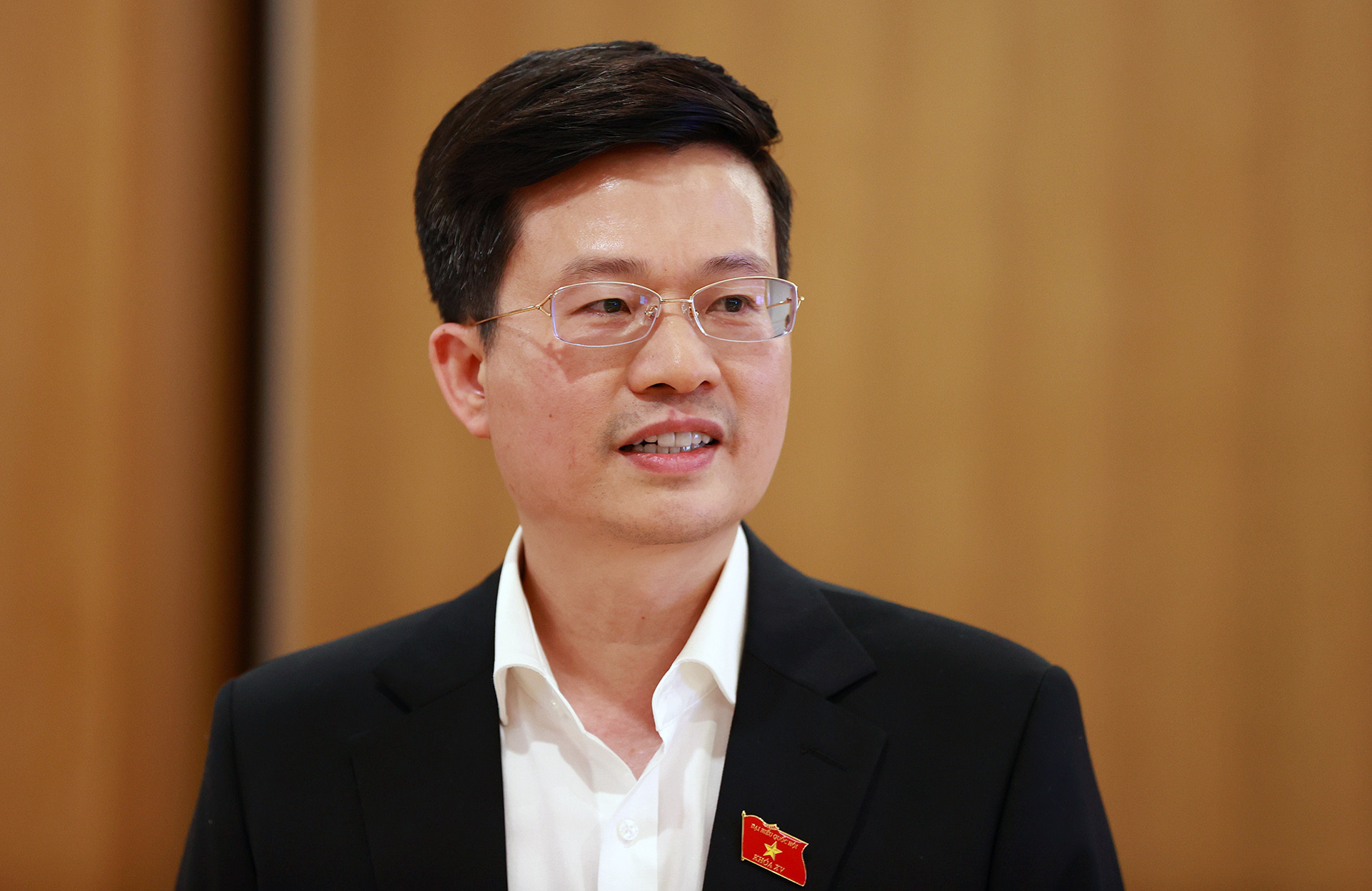
Associate Professor, Dr. Do Chi Nghia - Standing Member of the Committee on Culture and Education.
Investor: In the current trend of technology explosion, especially the rise of artificial intelligence and AI, what do you think press agencies need to do to keep up with that change?
National Assembly Deputy Do Chi Nghia: Over the past 99 years, the country's press has undergone huge changes. There are even issues where press technology has been proactively applied. Therefore, I believe that with the explosion of science and technology, the press has more advantages and opportunities to develop.
However, in order not to fall behind, the most important thing for the press is to stay close to the public. Now there are many algorithms to understand and approach the public, approach the user's usage habits, thereby creating press products suitable for digital platforms and digital audiences.
Applying technology to the press product process is not too difficult, but the difficulty is thinking to adapt to new technology and grasp user habits.
Investor: Many people say they don’t need newspapers anymore and can still find out everything on social networks. However, reality proves that users are easily trapped by fake news and toxic news. What do you think about this issue?
National Assembly Delegate Do Chi Nghia: Let's imagine, if information on social networks is fast, attractive and accurate, what can the press do to compete? What helps the press develop and be trusted by the public is the truth. The more fake news there is on social networks, the more the press can demonstrate its role as a truth-giver.
Journalists must deeply understand the core values of journalism, which are to seek the truth and speak the truth for the benefit of the country and the people, under the leadership of the Party. To do so, the press must have clear viewpoints and opinions, be highly oriented, and must "fight" on hot, urgent issues of life that the public is interested in.
If there is still false and misleading information on social networks, that is where the press shows its role and strength. The press reflects the true nature of the truth in a timely manner, the public will trust and seek it out. But it will be very worrying if social networks have very misleading stories, pushing things far from their essence, which need to be refuted, but the press remains silent and avoids it. If we keep "safe" and cover our ears like that, how can the public place their trust?
Nowadays, I see some newspapers, including local newspapers, have information pages on Facebook or TikTok platforms that are very innovative, very close to the public, with very good descriptions that force readers to read the articles inside. I think this is an effective adaptation. That means it must be correct, timely and attractive.
Policy communication is not all praise.
DSPL: In the National Assembly, National Assembly members talked about the current mechanism of assigning tasks and placing orders with the press, and the financial mechanism is almost difficult to implement. This leads to limited communication effectiveness for the goals and purposes of protecting ideological foundations. So what is your assessment of the current mechanism of placing orders with the press?
National Assembly Deputy Do Chi Nghia: We have Directive No. 7/CT-TTg of 2023 of the Prime Minister "on strengthening policy communication work" in the new situation. This is a breakthrough, closely following reality and is expected to create strong changes.
The highlight of this Directive is that it clearly identifies policy communication as the responsibility of State management agencies, which must have personnel and resources to do policy communication.
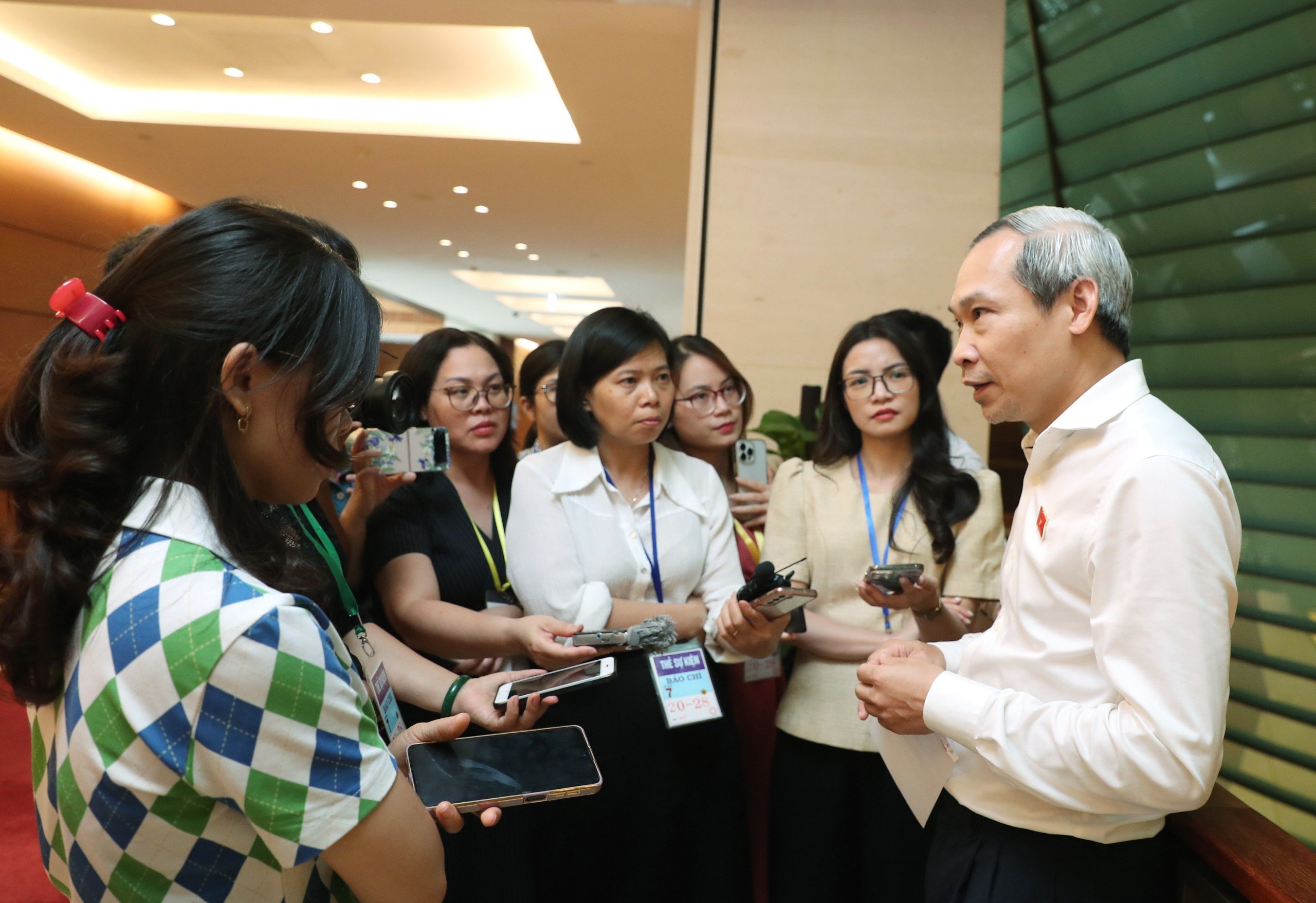
Reporters work in the hallway of the National Assembly.
However, from correct policy to practical implementation, there are still many difficulties and obstacles, requiring efforts and unified awareness. In other words, to effectively communicate policies, there must be strong enough policies that are close to the reality of communication. I mention two issues about promoting the role of policy communication.
Firstly, increasing the budget for communication is necessary, but how to spend money is not an easy problem. Because if we count the number of articles ordered according to current budget regulations, there will be many similar articles. This will waste the budget but not be effective.
Second, policy communication is not only policy illustration but also criticism to build and perfect policies. Do ministries and branches order criticism articles, articles "criticizing" policies? If all articles are praise, informational articles, then problems, bottlenecks, and policies and procedures that make it difficult for people and businesses will still be left on the sidelines of policy communication. Not to mention, if the press only praises, is it in line with the spirit of promoting "criticism and self-criticism" that the Party has proposed?
Investor: As a National Assembly member and a researcher and lecturer in journalism and communication, what policies do you suggest so that press agencies can both ensure economic security, perform well in policy communication tasks and meet the people's increasing need for information?
National Assembly Delegate Do Chi Nghia: State agencies need to increase orders for policy criticism articles, as well as pay attention to removing financial mechanisms and tax policies for the press.
Revolutionary press must "protect against storms in the morning and against the heat in the afternoon", and must rise up to shoulder responsibility before the Party and the people on the information front. The Party and the State always care for and support the press, but also place increasingly high demands on the quality and effectiveness of information.
Management agencies need to place trust and create space for the press to promote responsibility and creativity. This is the important highlight in policy with the media to communicate policies effectively as expected.
Investor: Thank you for taking the time to share !
Thu Huyen - Hoang Bich
Source: https://www.nguoiduatin.vn/tang-cuong-dat-hang-bao-chi-trong-phan-bien-chinh-sach-a668695.html






![[Photo] Prime Minister Pham Minh Chinh chairs the 16th meeting of the National Steering Committee on combating illegal fishing.](https://vphoto.vietnam.vn/thumb/1200x675/vietnam/resource/IMAGE/2025/10/07/1759848378556_dsc-9253-jpg.webp)



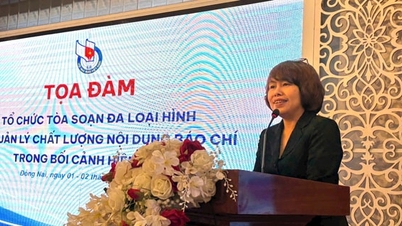




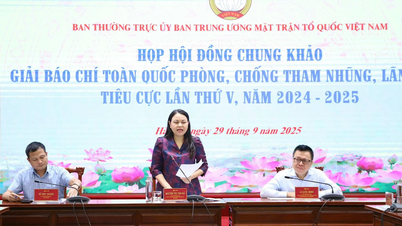
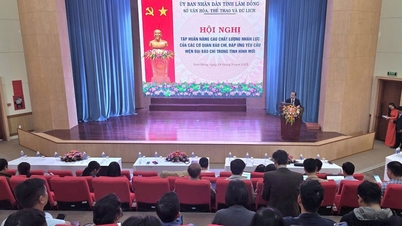






















![[Photo] Super harvest moon shines brightly on Mid-Autumn Festival night around the world](https://vphoto.vietnam.vn/thumb/1200x675/vietnam/resource/IMAGE/2025/10/07/1759816565798_1759814567021-jpg.webp)




















































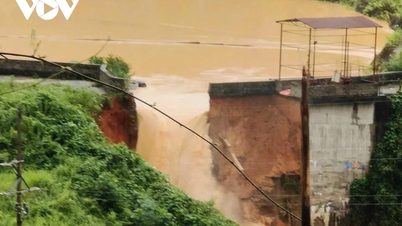

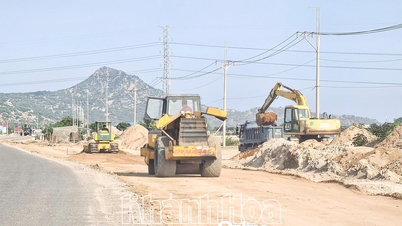














Comment (0)